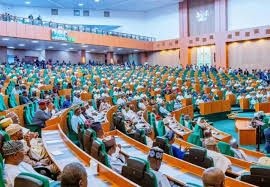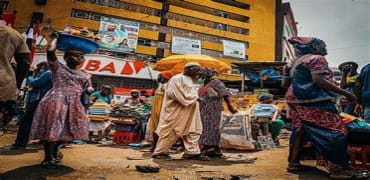Reps Approve $347m Loan Boost for Lagos-Calabar Highway, Rural Connectivity
Reps Approve $347m Loan Boost for Lagos-Calabar Highway, Rural Connectivity
The House of Representatives has approved President Bola Tinubu’s request to borrow an additional $347 million as part of Nigeria’s revised 2025–2026 external borrowing plan. The funds are earmarked for two major projects—the Lagos-Calabar Coastal Highway and a nationwide rural telecommunications initiative.
Speaker Tajudeen Abbas read the President’s letter during Wednesday’s plenary session in the Green Chamber. In the correspondence, President Tinubu cited rising funding needs, especially for the Lagos-Calabar Coastal Highway, whose total cost has increased from $700 million to $747 million.
The President explained that when the borrowing plan was initially submitted to the National Assembly, the lead arranger had secured only $700 million in financing commitments. The $47 million shortfall, he said, has since been covered by export credit agencies, but formal legislative approval was required to align with the financing terms.
“It is, therefore, necessary to increase the value of the financing for the project by $47 million to ensure it aligns with the loan size agreed in the finance documents for the project,” the President stated.
In addition to the highway funding, $300 million was approved for the Nigerian Universal Communications Access Project, a critical national effort aimed at closing the digital divide. The initiative will deploy 7,000 telecom towers in remote, underserved communities across the country.
This latest approval nudges Nigeria’s total borrowing plan for 2025–2026 from the initial $21.54 billion to $21.89 billion, also including €2.19 billion, ¥15 billion, and a €65 million grant, as earlier requested by the President in May.
Presenting the report to the House, Abubakar Nalaraba (APC, Nasarawa), Chairman of the House Committee on Aids, Loans, and Debt Management, defended the new borrowing. He emphasized that Nigeria’s current debt profile, though sizable at over ₦145 trillion, remains sustainable, with a debt-to-GDP ratio of about 50%, below the international threshold of 56%.
Nalaraba further pointed out improvements in the debt service-to-revenue ratio, which he said has dropped from over 90% to below 70%, attributing the gains to fiscal reforms introduced by the current administration.
“The Federal Government’s ability to manage the new loans will be further strengthened by the Nigerian Tax Act 2025, which is projected to increase revenue by over 18% annually from 2026,” he added.
Deputy Speaker Benjamin Kalu presided over the plenary and approved the loan request after Speaker Abbas left midway into the session.
The Lagos-Calabar Coastal Highway is among the administration’s signature infrastructure projects, aimed at enhancing connectivity and spurring economic growth along Nigeria’s southern corridor. Meanwhile, the rural telecoms access project seeks to expand digital inclusion, particularly in areas that have historically lacked reliable internet access.
By Haruna Yakubu Haruna



















